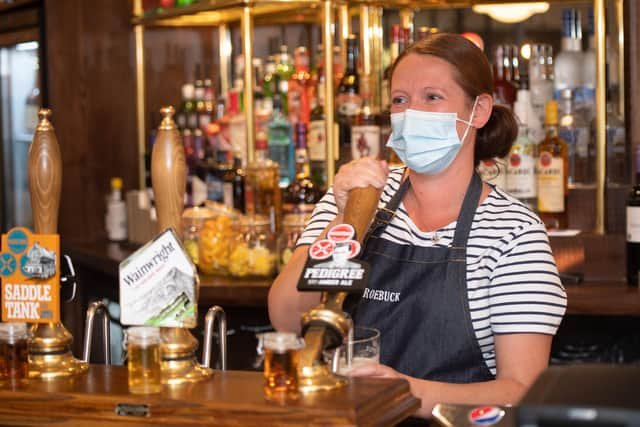Pub and inns chain with 21 Scottish sites says Omicron not killing festive bookings
Revenues in the 52 weeks to October 2 came in at £423.8 million, down sharply from £821m a year earlier, reflecting “significant disruption” to trading from the pandemic, as well as the sale of its brewing business to Carlsberg Marston’s Brewing Company.
Underlying losses amounted to £100m, from a deficit of £22m the previous year.
Advertisement
Hide AdAdvertisement
Hide AdHowever, bosses pointed to improved trading after the majority of lockdown measures were removed during the summer, with sales levels pushing above 2019’s. Strong accommodation sales reflected a surge in staycations, the firm added.


Current trading has been described as “encouraging” with total like-for-like sales up 1.3 per cent versus 2019 despite a reduction in VAT relief.
Chief executive Andrew Andrea said customers were sticking with their Christmas bookings, with an actual uptick experienced during the past weekend, despite the emergence of the Omicron variant and possible additional restrictions.
He said the group, which has an estate of about 1,500 pubs and restaurants, including 21 north of the Border, had adapted to various lockdowns, restrictions and mitigation measures over the past 20 months or so of the pandemic.
“While there are still some challenges to navigate over the months ahead, we believe the worst of the pandemic is now behind us and Marston's has emerged a stronger, more focused business which is in great shape,” he said.
Andrea acknowledged the challenges facing the business from inflationary pressures and supply constraints but said mitigations had been put in place, with alternative products always available, while offering assurances that “there will be turkey on the menu” this Christmas.
He played down labour shortages, which he said had impacted hospitality businesses with a greater exposure to city centre trade.
Greg Johnson, an analyst at brokerage Shore Capital, said: “The estate continues to benefit from the shift in consumption from ‘cities to suburbs’, but is also expected to benefit from targeted capital investment, evolution of the estate and investment in staff.”
A message from the Editor:
Thank you for reading this article. We’re more reliant on your support than ever as the shift in consumer habits brought about by coronavirus impacts our advertisers. If you haven’t already, please consider supporting our trusted, fact-checked journalism by taking out a digital subscription: www.scotsman.com/subscriptions
Comments
Want to join the conversation? Please or to comment on this article.
